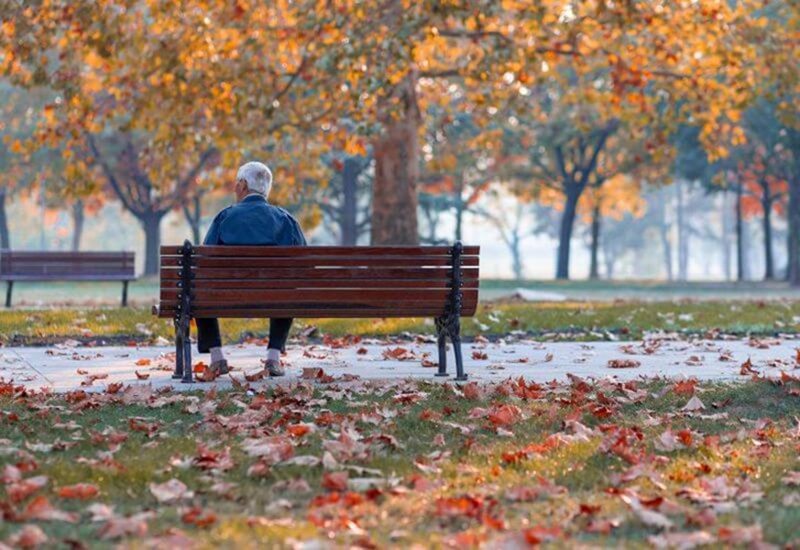Loneliness among elderly people is an increasingly recognized social and health issue affecting millions of older adults around the world. While it’s a common part of the aging process for some, it doesn’t have to be inevitable. Understanding the signs, effects, and solutions for loneliness in the elderly can help older adults stay connected, engaged, and happy in their later years.
Signs of Loneliness in Elderly People
Loneliness can manifest in various ways, and recognizing these signs is the first step toward providing support. Some key things to watch for include:
- Decreased social interactions: Lonely elderly people often engage in few, if any, social activities. They may rarely leave home, decline invitations to social events, and communicate infrequently with friends and family. These changes may be gradual but become evident over time.
- Changes in communication patterns: A shift in how seniors communicate can also signal loneliness. This might include fewer phone calls, texts, or emails to loved ones. When they do communicate, their conversations may hint at feelings of isolation or sadness, or they may express a longing for more frequent contact or visits.
- Neglected personal care: Loneliness may decrease the motivation to maintain personal hygiene or health. Eventually, this may affect the person’s appearance, cleanliness, and physical health. Less interest in self-care stems from the feeling that no one is around to look good for, so why bother?
- Altered sleep patterns: Sleep changes are common among lonely elderly people. This may include difficulty falling or staying asleep or excessive daytime napping. The lack of social interaction and increased idle time may disrupt their natural sleep patterns.
- Loss of appetite or changes in eating habits: Loneliness can make an elderly person less interested in cooking or eating, possibly due to the absence of shared meals. On the other hand, some may turn to food for comfort, leading to unhealthy eating habits.
- Expressions of sadness or despair: Elderly individuals experiencing loneliness might say they feel disconnected, express a lack of purpose, or show an overall pessimistic outlook on life.
Effects of Loneliness in the Elderly
Loneliness and social isolation have far-reaching effects on the health and well-being of elderly individuals. Understanding these impacts may lead to more effective solutions. Here are some key effects to be aware of:
- Increased risk of premature death: Loneliness in the elderly has been linked to a shorter life expectancy, with its impact comparable to that of smoking and obesity.
- Higher rate of physical health problems: Loneliness increases the risk of developing cardiovascular diseases, stroke, and other health conditions, which decrease the quality of life, increase healthcare costs, and lead to emergency hospitalizations.
- Poor mental health: Depression, anxiety, and cognitive decline are common effects of loneliness in the elderly. It also increases the risk of dementia, making it crucial to address social isolation before it takes a toll on mental health.
- Decreased quality of life: Ongoing social isolation can affect an elderly person’s sense of well-being, satisfaction with life, and overall happiness.
- Vulnerability to elder abuse: Socially isolated and lonely seniors may be more susceptible to physical, emotional, and financial abuse.
How to Reduce Loneliness in Elderly People
Reducing loneliness among the elderly is essential for improving their quality of life and sense of well-being. Here are some effective strategies:
- Promote social skills training: This helps elderly people improve their ability to interact and communicate with others, spread their social network, and reduce feelings of loneliness. Social skills can be delivered through workshops or one-on-one sessions.
- Encourage participation in community and support groups: Joining a group of like-minded individuals offers elderly people a sense of belonging and an opportunity to share experiences with peers in a similar stage of life. These groups can be based around hobbies, educational classes, or support for specific health issues.
- Utilize befriending services: Befriending services connect lonely elderly individuals with volunteers who provide companionship through regular visits or phone calls. This personal connection reduces feelings of isolation and provides much-needed emotional support.
- Improve access to transportation: Many seniors no longer drive, so access to reliable transportation helps them participate in social activities, attend medical appointments, and maintain independence. Community shuttle services or subsidized public transportation may be beneficial.
- Offer technology training: Teaching the elderly to use technology reduces their social isolation by keeping them connected with family and friends through social media and video calls.
- Move to an age-friendly community: Living somewhere with age-friendly policies and infrastructures, such as accessible buildings and public socializing areas, encourages the elderly to engage more with their environment and neighbors.
- Offer mental health support: Providing accessible mental health services, including counseling and cognitive behavioral therapy (CBT), can help the elderly cope with loneliness and its effects. These services are effective for addressing the negative thoughts and behaviors that contribute to feelings of loneliness. Mental health support can also identify those at risk and offer interventions earlier.
Elderly Loneliness Solutions at SmithLife Homecare
Addressing loneliness and social isolation among older adults is crucially important. SmithLife Homecare offers a range of services designed to support seniors so they can lead a fulfilling life. We pride ourselves on our flexible, 24/7 care, highly qualified nurse caregivers, and ability to start services on short notice. With over 20 years of experience, we have established ourselves as a trusted provider in Maryland and Washington, DC. Our value-based pricing and free registered nurse assessments aim to make high-quality senior care accessible to everyone.
For compassionate caregiver services that address your elderly loved one’s needs, including combating loneliness, please contact us today.

About the Author-
Andres Arrazola, with his extensive experience in assisted livings, group homes, and memory care, now serves as the Sales Manager for SmithLife Homecare in Montgomery County, MD, and DC. His commitment to senior care was ignited by his grandmother’s Alzheimer’s diagnosis, driving him to ensure every senior ages with dignity and joy. Focused on delivering compassionate care and enriching the lives of the elderly, Andres upholds the belief that exceptional care is fundamental to a fulfilling later life.
